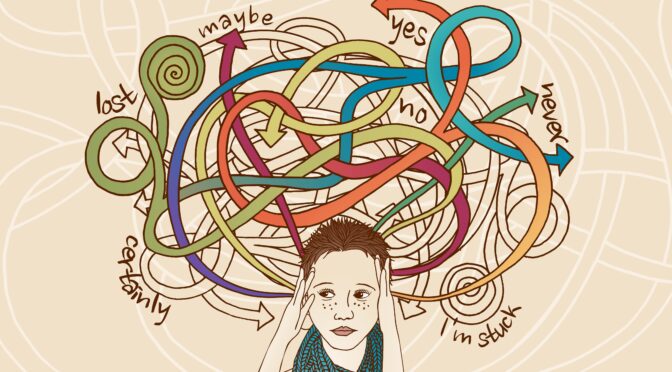Meditation is a simple and proven path to improve mental and physical health. Its effects have been seen for thousands of years and have been tested and proven in modern times.
There are many ways to meditate – you can always find one that suits you. It can be as easy as taking 2 to 5 seconds where you disengage from thoughts and clear your head; it can be coloring, running or mindful breathing. Find a way that resonates with you.

If you are of the anxious sort you should definitely consider meditation, as it is the best long term solution to stress and anxiety.
Research has shown that eight weeks ofmeditating less than 30 minutes a day can decrease perceived anxiety and stress. MR images show a link between perceived stress-reduction and a decrease in gray-matter density in a part of the brain called the amygdala. [1] Meditation changes your brain structure!
The amygdala is the fear center of your brain. It is an important component in the limbic system (old mammalian brain) and is partly responsible for your fight or flight-response. It mediates stress-hormone release, blood pressure elevation and facial expression of fear. [2]
This part of the brain gives us humans a negative bias that helped our ancestors survive life in a very threatening environment, with sabre-tooth tigers crouching behind our food-source-bushes. Today this high activity in the amygdala is not nearly as important for our survival – it can even hinder our quality of life and our inner peace.
A group of scientists at Stanford University found that meditating for as little as eight weeks resulted in the ability to turn down the reactivity in the amygdala. [3] This reduced activity lets you feel more at ease in situations where you previously reacted with stress and fear.
 Numerous scientific studies have found meditation to be effective for treating anxiety. One group of researchers looked at how mindfulness had helped with anxiety management across various types of people: from those suffering with cancer, to those with social anxiety and eating disorders.
Numerous scientific studies have found meditation to be effective for treating anxiety. One group of researchers looked at how mindfulness had helped with anxiety management across various types of people: from those suffering with cancer, to those with social anxiety and eating disorders.
The amount of meditation per day has been found to be only mildly correlated with the improvement of stress:
“To assess whether the amount of individual meditation home practise predicted the improvement in stress, the number of minutes of meditation practise that participants reported on daily logs was correlated with the magnitude of their reduction in stress. […] the amount of training was mildly correlated with the improvement in stress […]. [1]
Basicly, this means that the frequency of meditation seems to be more important than the duration of each session. In other words, five minutes of meditation every day is better than 2 hours once every two weeks. Good news if you were worried that you had to meditate for hours every day to reap the benefits!
Like in most things, the time to start is now. Set a timer to 5 minutes and begin.
About the author:
Vegard Paulsen is co-founder of Global Harmony Crew.
Global Harmony Crew points you towards deep realization, and guides you towards powerful manifestation. For more timeless truths and life-enhancing material, join the crew by subscribing. You will get their video course on Inner Peace for free. And you can preview their course on how to control your brain chemicals
Follow Global Harmony Crew on Facebook.
References:
[1] Hölzel, B.K., Carmody, J., Evans, K.C., Hoge, E.A., Dusek, J.A., Morgan, L., Pitman, R. & Lazar, S. (2009). Stress reduction correlates with structural changes in the amygdala. Social Cognitive and Affective Neuroscience. 5. 11-17. http://www.ncbi.nlm.nih.gov/pmc/articles/PMC2840837/#B42
[2] LeDoux JE. Emotion circuits in the brain. Annual Review of Neuroscience. 2000;23:155–84. [PubMed]
[3] Goldin, P. R., & Gross, J. J. (2010). Effects of mindfulness-based stress reduction (MBSR) on emotion regulation in social anxiety disorder. Emotion. 10, 1. 83-91.

